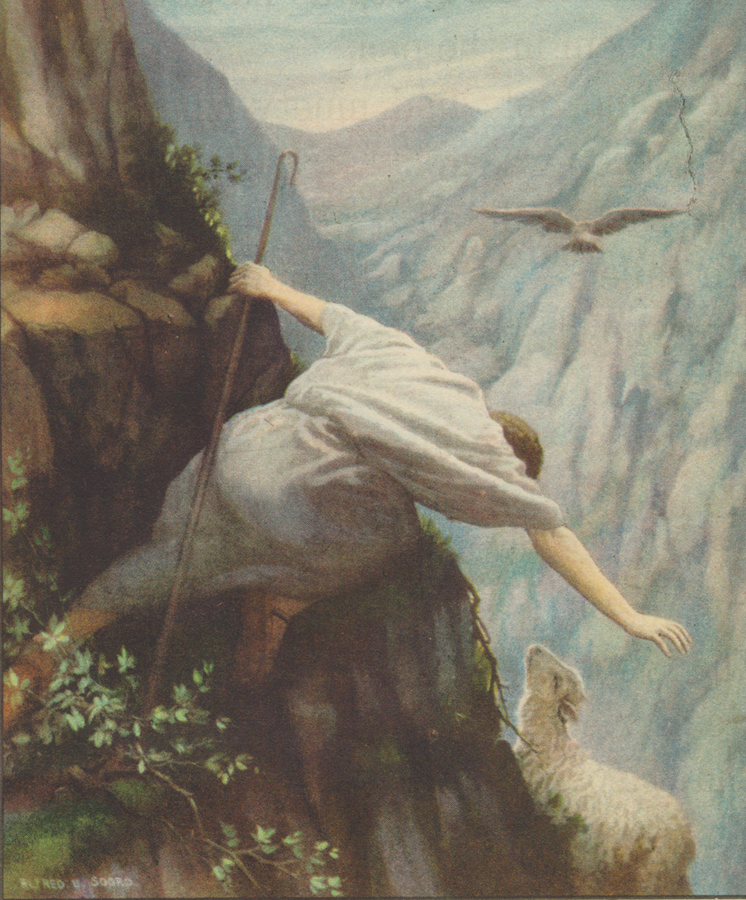
The Lost Sheep, c.1898
Alfred Usher Soord
The gospel reading for this day (Matthew 18: 10-20) begins with the parable of the lost sheep, followed by Jesus’ teaching about confronting someone who wrongs you. The words are very familiar, and at first pass their juxtaposition seemed odd. A beautiful story joined with rules of procedure? How did we get here? But then I saw the two sections as ideas held in balance.
The parable is a story of God’s great love for the individual, even from his mighty perspective of the whole:
What do you think? If a man has a hundred sheep, and one of them has gone astray, does he not leave the ninety-nine on the mountains and go in search of the one that went astray? And if he finds it, truly, I say to you, he rejoices over it more than over the ninety-nine that never went astray.
The second lesson begins with individuals, then adds two or three witnesses, and finally the entire congregation. Jewish law required the testimony of two witnesses to establish truth (which, by the way, is why the Spirit bears witness with our spirit), and so the individual’s power over another individual is limited.
Truly, I say to you, whatever you bind on earth shall be bound in heaven, and whatever you loose on earth shall be loosed in heaven. Again I say to you, if two of you agree on earth about anything they ask, it will be done for them by my Father in heaven. For where two or three are gathered in my name, there am I in the midst of them.
Jesus words, ““If he listens to you, you have gained your brother” and “ if he refuses to listen even to the church, let him be to you as a Gentile and a tax collector” are words of retrieval and loss.
It seems as if God’s love for the one does not make the individual the most important. There’s balance, not privilege. Perhaps this is a manifestation of the Trinity. The Lord is God, the Lord is One, and never without a witness.

